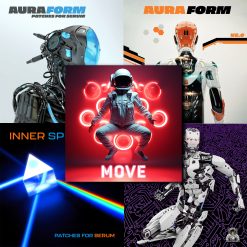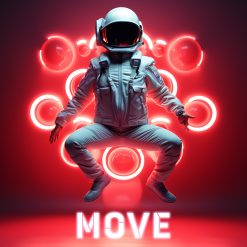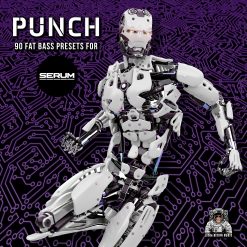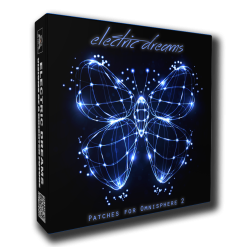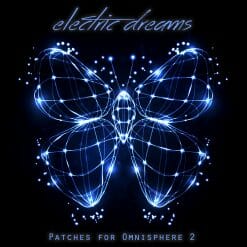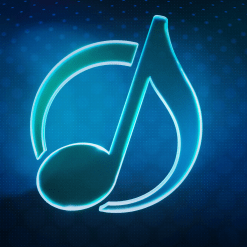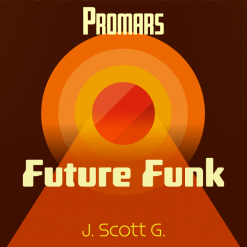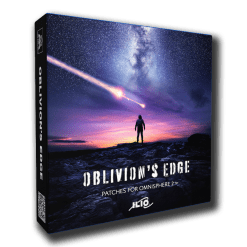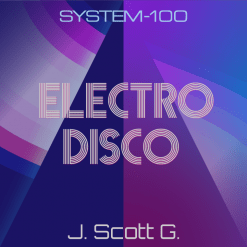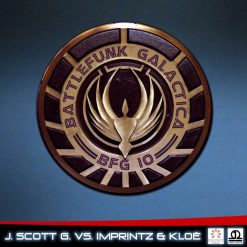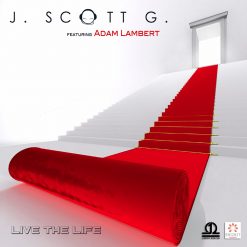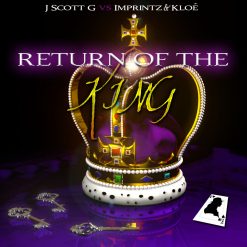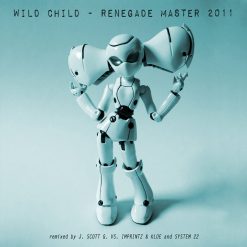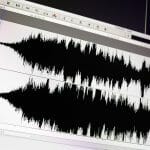Articles
The Analog Vs. Digital Debate
Written by prophei (Micheal Dietel)
Over the years, I have repeatedly found myself falling into one of the most passionate and annoying conversational traps known in the audio world… the argument over what is better – analog or digital?
Being a reasonably optimistic kind of creature, I will make the broad assumption that most people in our little audio world have been dragged into this battle at one time or another, frustratingly challenged to take a stance in online threads or in late-night drunken personal discussions that have poorly attempted to intelligently address this question.
Unfortunately, it is the “intelligent” part of this discussion that has been so lacking, typically replaced with nothing more than hot lava spewing from the mouths of the most loyal adherents to whatever given “side” has won their hearts – or more likely just the side best describing their own studio space.
Since I am a bit of a hardware geek, I have always fallen on the “side” of analog when encountering this debate. I have always done so out of a sense of honor to my chosen passion, but in a way, it hasn’t always been the most honest. Part of me just enjoys stoking the fires behind ideas to see what comes falling out… and that makes me either a saint or an ass… depending on how much affinity you have for my position.
The problem here is that the entire debate is a bunch of bullshit, and has been for a long time. Why, you might ask? Because it has typically been built on the wrong argument.
There are endless articles and discussions that extoll the power, beauty, and warmth of analog in all its various flavors. Whether it be about analog synths, processing, summing, mixing, or WHATEVER other thing that makes analog amazing… it is all mostly true.
There are endless articles and discussions that extoll the power, beauty, and clarity of modern digital studio. The stunning power of well designed software synths, and the fact that a studio can fit into little more than a laptop… it is pretty damn amazing… and mostly worthy of all the accolades.
In all of that, for some reason, we keep asking what is better without ever defining what better actually means.
It is fact that some of the most breathtaking music the world has ever heard was derived from the use of lots of expensive analog gear, but it would be dishonest to ignore that there have been breathtaking albums created and written solely in the digital domain. At this point, that is a fact.
“The problem here is that the entire debate is a bunch of bullshit, and always has been. Why, you might ask? Because it has always been built on the wrong argument.”
With the understanding that better is a really loose term, I will suggest that the truth behind this debate goes a little deeper and more personal than is typically given credit. Better for me is not necessarily going to be better for you… and that is really the issue. The thing that everyone seems to ignore is that the analog vs. digital debate is less about the sound as it is about the journey you take to get the sound.
Since I am admittedly a bit of a hardware junkie, I will describe what I mean from my vantage point.
Watching the digital world explode the way it has since my first days of recording to 4-track tape recorders has been mind blowing, to say the least. I still remember my first steps into Pro Tools, and the inevitable dive into endless plug-ins doing things that I could have never imagined doing with the crappy old hardware I used to own.
Over the years, the power and complexity of the digital age has rendered hardware almost a waste of time. In an age where you can load a brilliant AAX or UA plugin emulation of vintage hardware, it seems crazy for most to contemplate the sheer cost, weight, and practicality of the vintage originals. Whether you are thinking about classic pre’s or compressors… analog synths or drum machines… all of which are prone to the challenges of old age and service requirements… it seems, and possibly is, kind of a crazy direction to go.
That said, I have always loved buying old synths, and more recently have added things like classic pre’s, compressors, and more traditional guitar gear to the mix. All said, I am happier with my studio than I have ever been. All of this crap is WAY better to me. My sound is better, my style is better, and I have tons more fun doing it.
Whenever I talk about this with my exclusively digital friends, the discussion inevitably moves to discussions about whether the emulated plugins sound as good as the originals. I think they absolutely do not, and while I think there might be a bit of jealousy wrapped into the discussions (hell, hardware is definitely more lusty than software), there is a fundamental point being made for emulation that is hard to argue against.
Regardless of whether the originals sound better in a comparison to an emulation, does that always add up to an obvious difference in a mix? Can I claim to pick out originals in a recording vs emulations? Would any of the subtle differences ever make or break a recording… or impact the power of the music in any measurable way? In most cases, probably not.
There are certain analog instruments or effects that I can pick out from time to time in a recording because their character is so defined… but about 99% of the time, I likely couldn’t tell the difference in the final product. Not enough to place a big bet on.
Then what is the allure with analog hardware? If the above is true, why do I think there is a good argument supporting its supremacy (for me)? It goes back to my earlier point, that the importance lies on the journey you take to get to your sound.
I have to say it, for me, using nothing but plugins is the most sterile way to accomplish the goal. The endless noodling around on screen, the sterility that a controller brings as the only interface to vastly different synths, and most importantly… the perfection, I hate it.
In digital, everything sounds perfect and the same, every time… and it annoys the hell out of me. For example, a minimoog emulation sounds like one possible variant of a minimoog every – single – time. The same with most every emulation. It is as if the flow and organic nature of life is endlessly frozen in time to one specific moment that we are stuck with forever. I own a lot of analog synths, including many years with a real minimoog… and the plugins are garbage in comparison. I feel the same way about just about all emulations, they have no soul and are generally uninteresting to me.
Now it would be fair to point out that I sound like I am contradicting myself… that I said it is hard to tell the difference in a recording…etc… and that is all still true. This is the crux of the issue.
When I write what I write, part of what inspires me is all the rough spots in analog equipment. I get excited by having to keep shaky oscillators in tune. I get excited by overdriving processors that would fall apart if treated that way as a plugin. I hate all the beautiful guitar cab emulations in their perfection because there is nothing better than mic’ing a cabinet up unconventionally and finding that beautiful sweet-spot you would never have hit in software. To me, the chaos is part of the paint I am using to make the picture, and digital kills so many levels of that… for me.
“… cause you can use all the hardware (or software) in the world, and if your lasting contribution is being a self-righteous prick who writes shitty music, who really cares?”
To me, the sum of all of this chaos is what makes analog instruments and recording a more breathing and emotional experience in comparison the sterility of working only in digital. The movement of the sound, the work of the process, the different feel of every surface and knob I interact with. It is all part of a beautiful symphony that I am connected to… and it is hugely important. I will stand by this till the day I die.
Still, this isn’t about whether analog or digital technology is “better”. This is far more about the process that comes from using the gear… and how it happens to resonate with me.
Even with all the variations and differences I can hear if I compare a plugin to an original, once frozen in time, it can become much harder to tell. The impact for me is on the front end, not as much in the final recording… which is why the question regarding what is “better” is so personal.
Clearly, there are endless masses of amazing modern artists that have grown up creating their music completely “in the box”. They have an emotional connection to it that would only be distracted by dealing with a bunch of old hardware. They make music that is every bit as compelling, and it sounds every bit as brilliant. It just isn’t how I like to do it.
The bottom line is that it doesn’t matter what the tool is anymore. They are all brilliant in their own way, but will still be overshadowed by the true brilliance that comes from their use in the right hands. The key is finding the tools that help you develop the best workflow to get to that magic we are all chasing as artists. Spending your time on that is far more useful than bitching about whether analog or digital is better… cause you can use all the hardware (or software) in the world, and if your lasting contribution is being a self-righteous prick who writes shitty music, who really cares?

